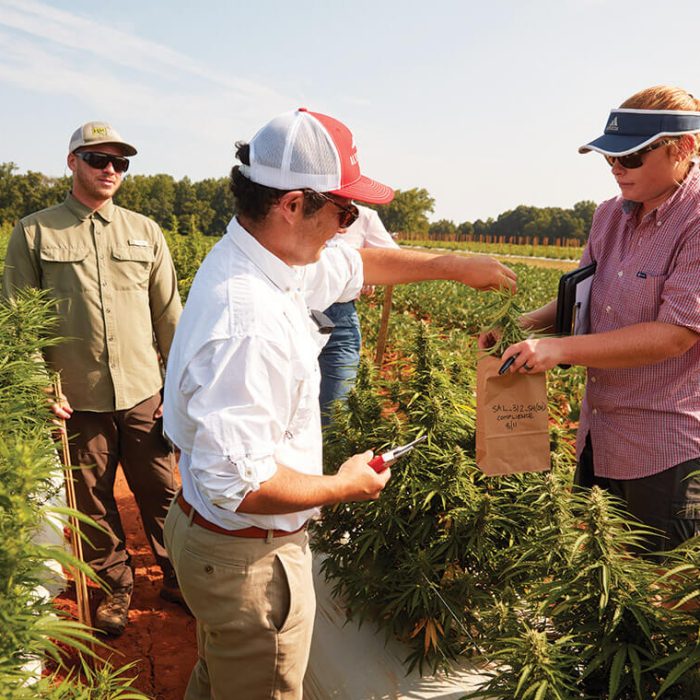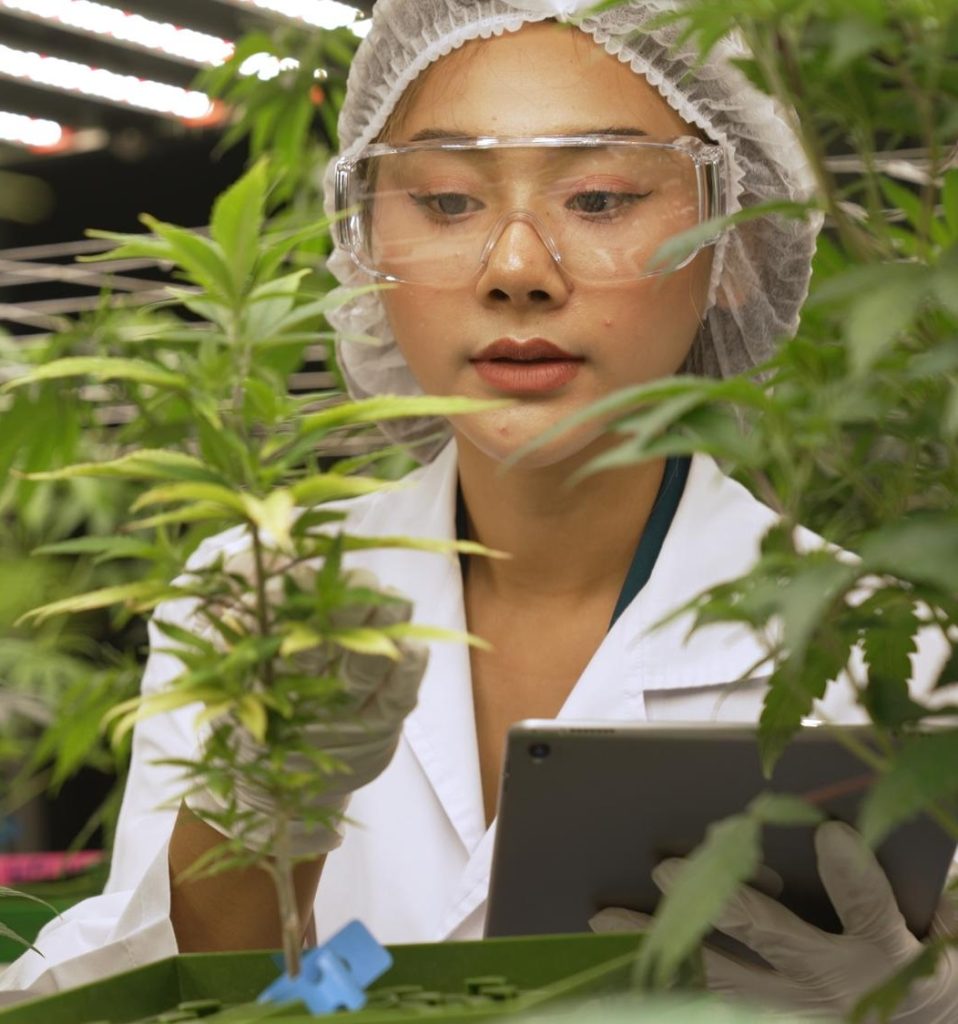Hemp innovation revolutionizes agriculture, manufacturing, and environmental sustainability worldwide.
The hemp industry is undergoing a remarkable transformation, propelled by a wave of innovation and technological advancement. As we witness the evolution of this ancient crop, we are not only witnessing a revolution in agriculture but also paving the way for a more sustainable future. Here’s how the hemp industry is revolutionizing itself and why it’s attracting attention from various sectors:
Our solar programs encompass a broad range of material sourcing, trade financing and inventory management services to help customers become more profitable by optimizing working capital and increasing liquidity. How can we meet the growing demand for electricity while protecting our climate?

25+ Years Of Experience

Unleashing the Power of Hemp:
- Hemp, once overlooked and underestimated, is now recognized as a versatile and sustainable resource with endless possibilities.
- From textiles to construction materials, hemp is being utilized in diverse industries, offering eco-friendly alternatives to traditional products.
- Its fast growth cycle, minimal need for pesticides, and ability to thrive in various climates make hemp a highly desirable crop for farmers worldwide.
Harnessing Innovation for Progress:
- Innovative cultivation techniques and advanced breeding methods have led to the development of high-yield hemp varieties with improved resilience and quality.
- Cutting-edge extraction technologies are enabling the efficient extraction of cannabinoids and other valuable compounds from hemp biomass, opening doors to new medicinal and wellness applications.
- Nanotechnology is revolutionizing the way we utilize hemp, enhancing its bioavailability and efficacy in various products, from supplements to skincare.
Building a Sustainable Future:
- Hemp’s eco-friendly nature makes it a cornerstone of sustainable manufacturing and production practices.
- Biodegradable packaging materials derived from hemp offer a greener alternative to conventional plastics, reducing environmental pollution and waste.
- Hemp-based construction materials, such as hempcrete, not only provide superior insulation and durability but also sequester carbon dioxide, mitigating the impacts of climate change.
Inspiring Change Across Industries:
- The allure of hemp’s versatility and sustainability is attracting entrepreneurs, investors, and innovators from diverse industries, including textiles, cosmetics, and agriculture.
- As consumer demand for natural and sustainable products continues to rise, businesses are recognizing the potential of hemp to meet these needs while reducing their environmental footprint.
- Collaborative research and development efforts are driving forward-thinking initiatives aimed at unlocking the full potential of hemp and maximizing its benefits for society and the planet.

Innovations in Hemp Cultivation
Exploring Cutting-Edge Techniques for Sustainable Farming
Innovations in hemp cultivation are revolutionizing the way we grow this versatile crop. From precision agriculture and vertical farming to regenerative practices, farmers are embracing new techniques to maximize yields while minimizing environmental impact. Here’s a closer look at the latest advancements in hemp cultivation:
- Precision Agriculture: Leveraging technology such as drones, sensors, and GPS-guided machinery, precision agriculture enables farmers to optimize inputs like water, nutrients, and pesticides, resulting in higher yields and reduced waste.
- Vertical Farming: With space becoming increasingly limited, vertical farming offers a solution by stacking crops in vertical layers. This innovative approach allows hemp to be grown in urban areas and controlled environments, maximizing efficiency and productivity.
- Regenerative Farming: Focused on soil health and ecosystem regeneration, regenerative farming practices aim to restore and enhance natural ecosystems while simultaneously producing high-quality crops. By fostering biodiversity, improving soil structure, and sequestering carbon, regenerative farming holds promise for sustainable hemp production.

Advanced Hemp Processing Technologies
Unlocking the Potential of Hemp Biomass
The development of advanced processing technologies is driving innovation in the hemp industry, unlocking the full potential of hemp biomass for a wide range of applications. From extraction and refining to manufacturing and product development, these technologies are revolutionizing the way we utilize hemp. Here are some key advancements:
- Supercritical CO2 Extraction: Utilizing carbon dioxide in its supercritical state, this extraction method allows for the precise isolation of cannabinoids, terpenes, and other valuable compounds from hemp biomass, yielding high-purity extracts for use in pharmaceuticals, nutraceuticals, and wellness products.
- Fractional Distillation: By separating compounds based on their boiling points, fractional distillation enables the refinement of hemp extracts into specific fractions with desired properties, such as THC-free distillates or isolated cannabinoids like CBD and CBG.
- Nanoemulsion Technology: Nanotechnology is revolutionizing the bioavailability and efficacy of hemp-derived products through nanoemulsion technology. By reducing particle size and increasing surface area, nanoemulsions enhance the absorption of cannabinoids and other bioactive compounds, leading to faster onset and increased potency.
Hemp-Based Sustainable Materials
Transforming Industries with Eco-Friendly Alternatives
Hemp-based sustainable materials are revolutionizing industries such as textiles, construction, and packaging by offering eco-friendly alternatives to traditional materials. From hemp fiber and textiles to hempcrete and bioplastics, these innovative materials are driving forward the transition to a more sustainable future. Here’s a closer look at some key developments:
- Hemp Fiber Reinforced Composites: With its high tensile strength and low environmental impact, hemp fiber is increasingly being used as a reinforcement material in composite applications such as automotive parts, furniture, and sporting goods, reducing the reliance on non-renewable resources like fiberglass and carbon fiber.
- Hemp Textiles and Apparel: Hemp textiles are gaining popularity for their durability, breathability, and antibacterial properties. From clothing and accessories to home textiles and upholstery, hemp fabrics offer a sustainable alternative to conventional cotton and synthetic fibers.
- Hemp-Based Building Materials: Hempcrete, a mixture of hemp hurds, lime, and water, is gaining traction as a sustainable alternative to traditional concrete for construction applications. With its excellent thermal insulation properties, fire resistance, and carbon sequestration potential, hempcrete is revolutionizing the way we build homes, offices, and infrastructure.
Hemp Innovations in Healthcare
Exploring the Therapeutic Potential of Cannabinoids
Hemp innovations in healthcare are unlocking the therapeutic potential of cannabinoids for a wide range of medical conditions, from chronic pain and inflammation to anxiety and epilepsy. As research continues to uncover the health benefits of cannabinoids like CBD and CBG, the hemp industry is poised to revolutionize the field of medicine. Here are some key developments:
- Clinical Research and Trials: Clinical research studies and trials are investigating the efficacy and safety of cannabinoids for various medical conditions, providing valuable insights into their therapeutic potential and optimal dosage regimens.
- Pharmaceutical Formulations: Pharmaceutical companies are developing cannabinoid-based medications for conditions such as epilepsy, multiple sclerosis, and chemotherapy-induced nausea and vomiting, paving the way for FDA-approved treatments derived from hemp.
- Wellness Products and Supplements: The popularity of hemp-derived CBD products has surged in recent years, driven by consumer demand for natural remedies and holistic wellness solutions. From oils and tinctures to capsules and topicals, hemp-based supplements offer a safe and effective alternative to conventional medications.

Hemp in Sustainable Fashion
Revolutionizing the Textile Industry with Eco-Friendly Fabrics
Hemp’s resurgence in the fashion industry is revolutionizing the textile sector with sustainable fabrics that offer style, durability, and environmental benefits. From haute couture to casual wear, hemp-based textiles are gaining popularity among designers and consumers alike for their versatility and eco-friendly credentials. Here’s a closer look at hemp’s role in sustainable fashion:
- Hemp Fiber Properties: Hemp fibers are known for their strength, breathability, and moisture-wicking properties, making them ideal for a wide range of clothing and accessory applications, including shirts, pants, dresses, and bags.
- Environmental Benefits: Compared to conventional cotton, hemp requires less water, pesticides, and fertilizers to grow, making it a more sustainable choice for eco-conscious fashion brands and consumers concerned about the environmental impact of their clothing.
- Circular Fashion Initiatives: Circular fashion initiatives are promoting the use of hemp-based fabrics in closed-loop systems, where garments are designed for longevity, repairability, and recyclability, minimizing waste and extending the lifespan of clothing items.
Years Of Experience In
The Solar Industry
Commercial, Residential And Industrial Solar Systems!
Our presence ensures timeliness, cost efficiency & compliance adherence!